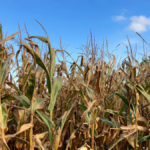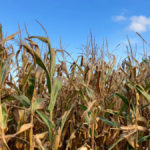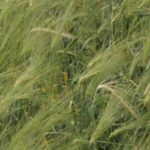
An(other) ounce of prevention
Research on the Record with Reynold Bergen
My first fire drill in Grade 1 was absolute chaos, screaming and panic as we all circled the teacher, who was likely wondering how our parents had managed to keep us alive this long. By Grade 3, we yawned and strolled to the nearest door. Fire drills teach kids what to do when there’s no […] Read more

Will the real superfood please stand up?
Research on the Record with Reynold Bergen
“Superfood” is a marketing (not medical or scientific) term used to describe foods with perceived health benefits because of exceptional nutritional properties. Google “superfood” and you’ll see numerous lists claiming health benefits for foods such as broccoli, legumes, nuts, salmon, eggs, kale, beans, spinach, and trendy new things like acai or goji berries that marketers […] Read more

Corn silage in backgrounding diets for cattle
Research on the Record with Reynold Bergen
Recent columns indicated that corn’s potential to produce 50 per cent higher silage (and starch) yields than barley may offset its 30 per cent higher growing costs, provided the right corn hybrid is selected for the local growing conditions, and provided growing conditions co-operate. The higher starch content of corn silage also means that feedlot […] Read more

Where does short-season corn fit?
Research on the Record with Reynold Bergen
Statistics Canada reports that Western Canada’s silage corn acreage has grown significantly in recent years. Nearly 30 per cent of seeded corn silage acres aren’t harvested, suggesting it’s likely being used for grazing. The potential for a 50 per cent higher yield compared to barley may offset corn’s 30 per cent higher input costs, but […] Read more

Warm season crops and cool climates
Research on the Record with Reynold Bergen
According to Statistics Canada, silage corn acreage was 26 per cent higher in 2015-19 than in 2010-14. Most of this increase occurred in the Prairies. Achieving corn’s potential will depend on whether plant breeders can successfully adapt this warm-season plant to Canada’s cooler climate. Plants contain two kinds of carbohydrates. Non-structural carbohydrates are starches and […] Read more

Can we reduce castration pain in week-old calves?
Research on the Record with Reynold Bergen
Calving season is upon some of you and just around the corner for many more. Half of those calves will be castrated. Research has shown that it’s best to castrate calves at the youngest practical age to minimize pain and speed recovery. The 2019 Adoption Rates of Recommended Practices by Cow-Calf Operators in Canada study […] Read more

Barley yields come up the backstretch
Research on the Record with Reynold Bergen
Like cattle performance, crop yields reflect the interplay between genetics, management practices and environmental conditions. Statistics Canada reports show that barley yields weren’t keeping up with other feed crops for decades. Barley yields increased 0.39 bushels/acre/year between 1980 and 2009, slower than either wheat (0.44) or corn (1.66). But since 2010, Canada’s barley yields have […] Read more

The latest research on cattle transport and rest stops
Research on the Record with Reynold Bergen
Note: This column was written and went to print before the federal government announced that the Canadian Food Inspection Agency would allow a two-year transition period for the new livestock transportation regulations, as they apply to cattle. The Canadian Food Inspection Agency will start phasing in its enforcement of Canada’s revised livestock transportation regulations on […] Read more

Nature vs. Nurture in animal performance
Research on the Record with Reynold Bergen
Nothing is ever as simple as we think it is or wish it was. We’ve known for centuries that an animal’s performance, health, behaviour and other traits depend on a combination of their genetics and their environment. The genetics are inherited from their parents. Environmental influences are not inherited. Environments might be similar across generations […] Read more

Feed efficiency and beef quality
Research on the Record with Reynold Bergen
Cattle breeders are often cautioned to avoid selecting too heavily for a single trait. Avoiding extremes is the obvious reason; selecting for small frame size in the 1950s accidentally resulted in a dwarfism problem in a few breeds. Another reason is that a lot of traits are genetically correlated, meaning that selecting for one trait […] Read more



